Almost Perfect
Andrew Kreps Gallery, New York
February 24, 2023 - March 24, 2023
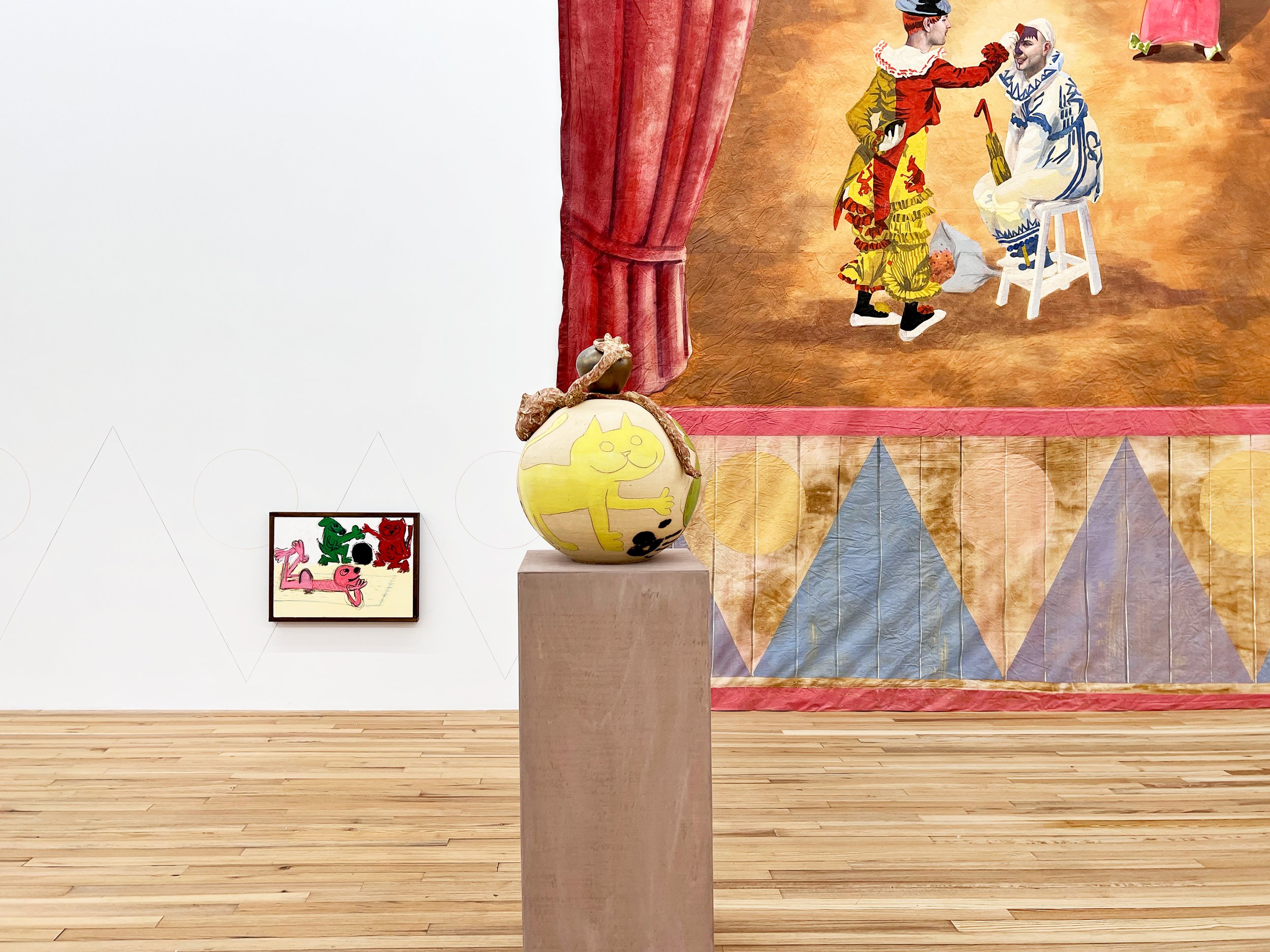
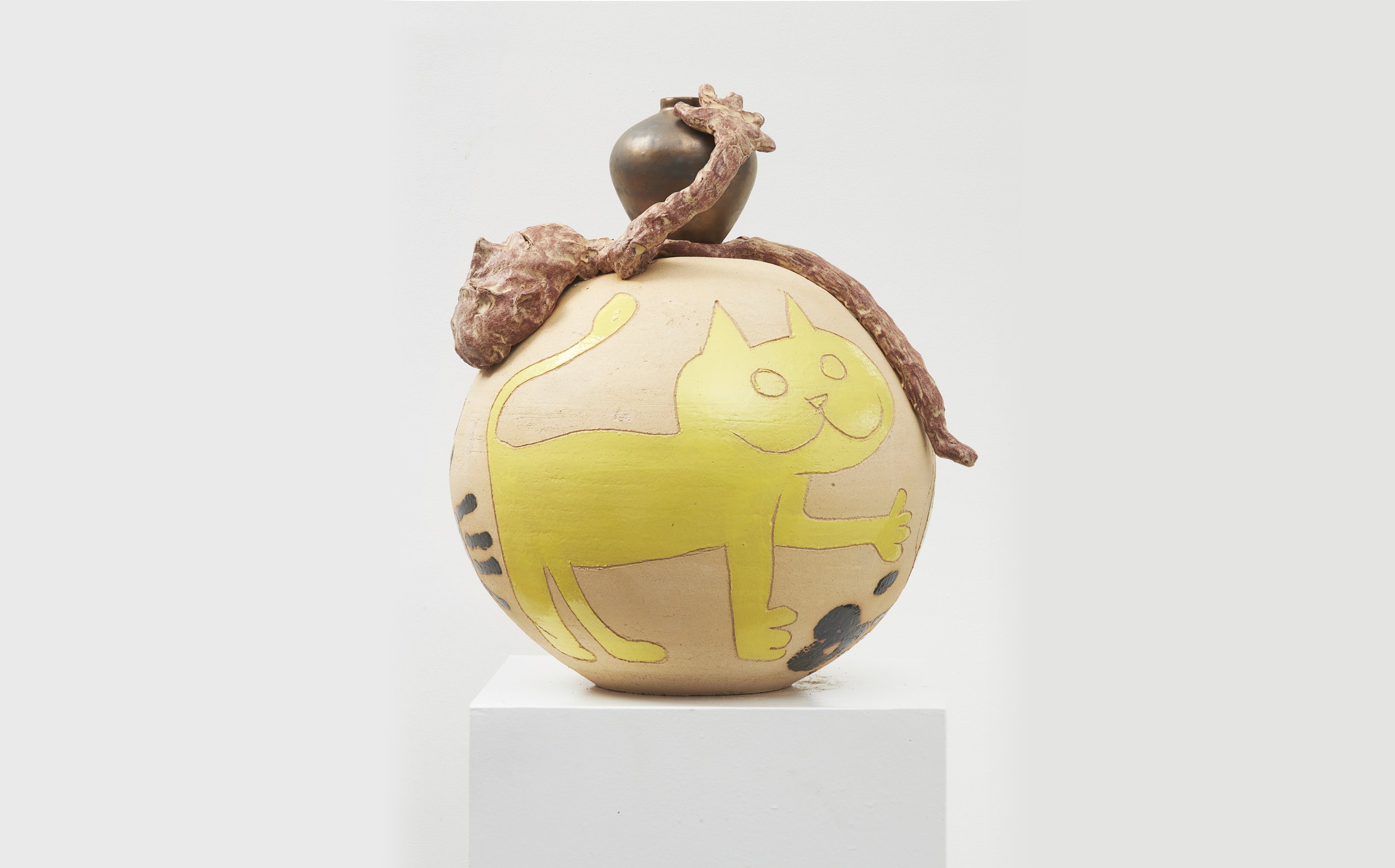
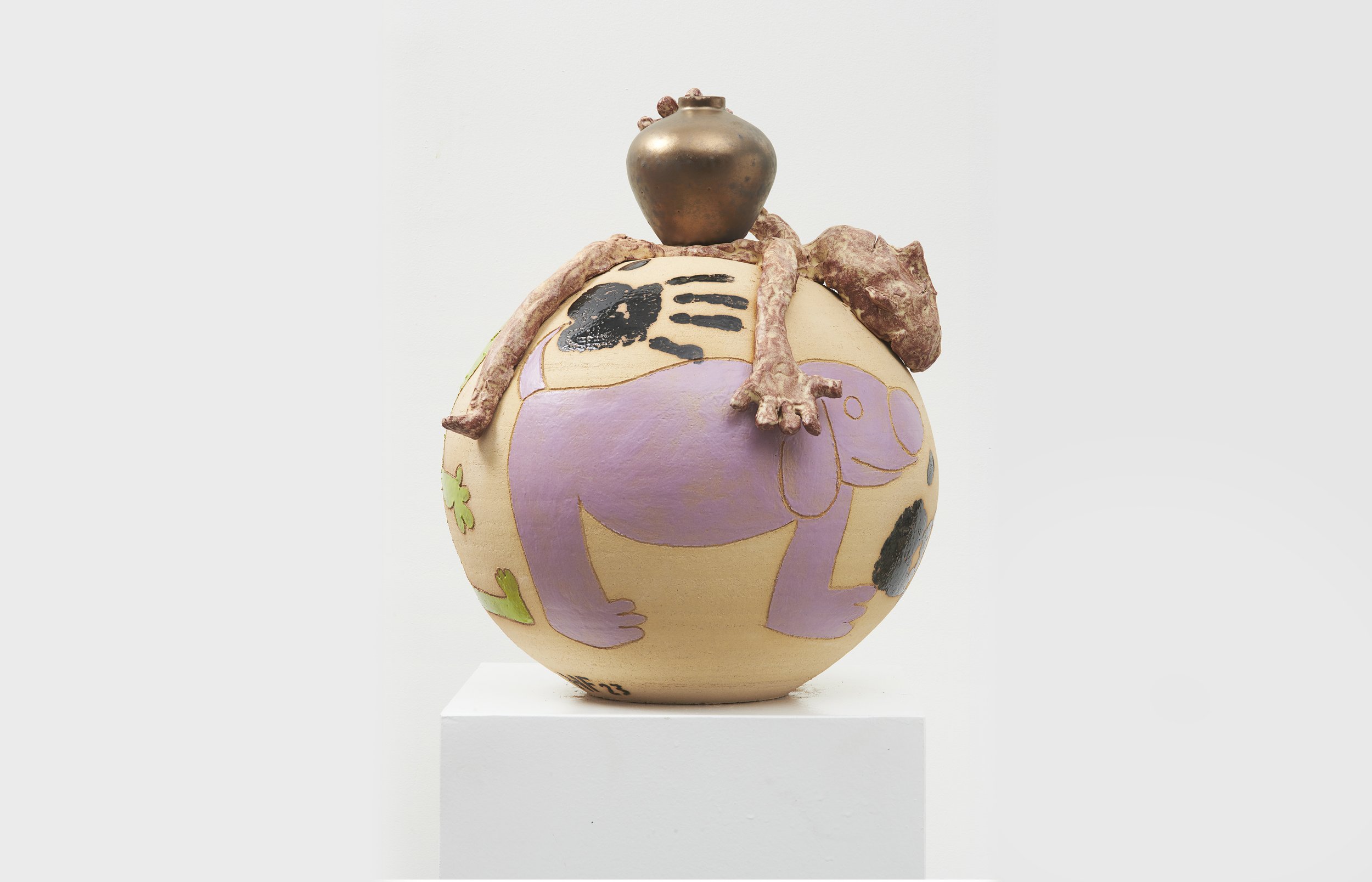
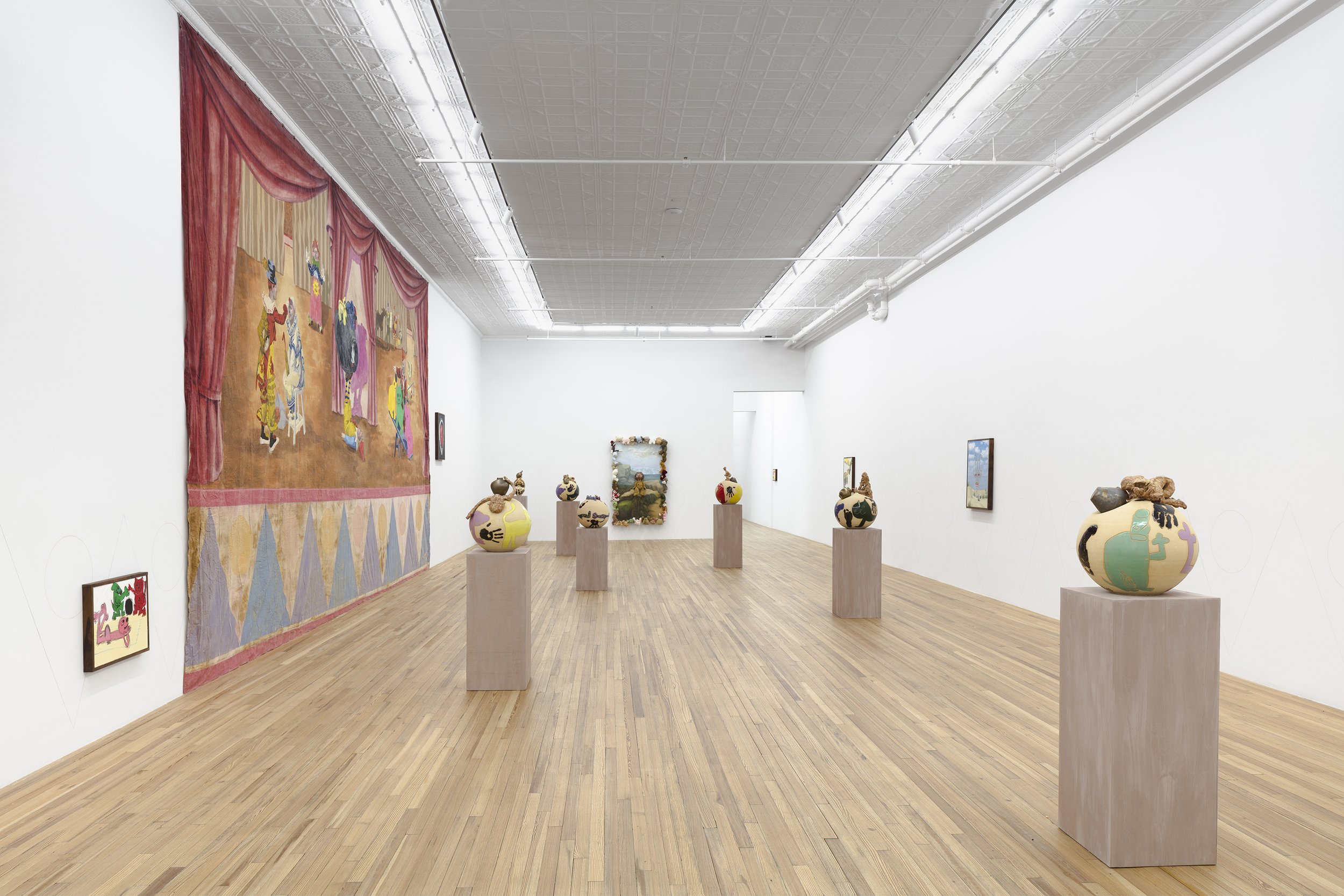
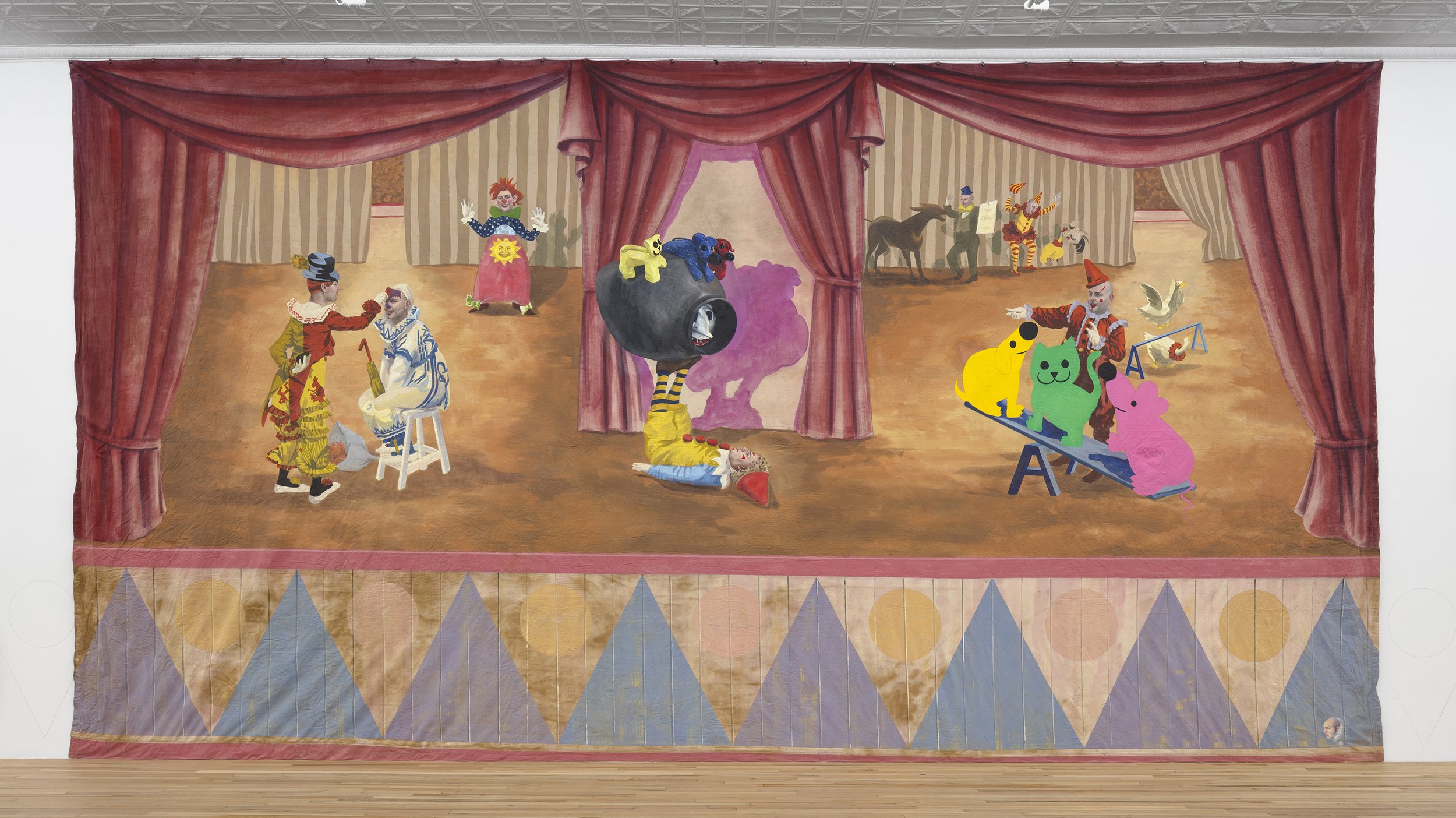
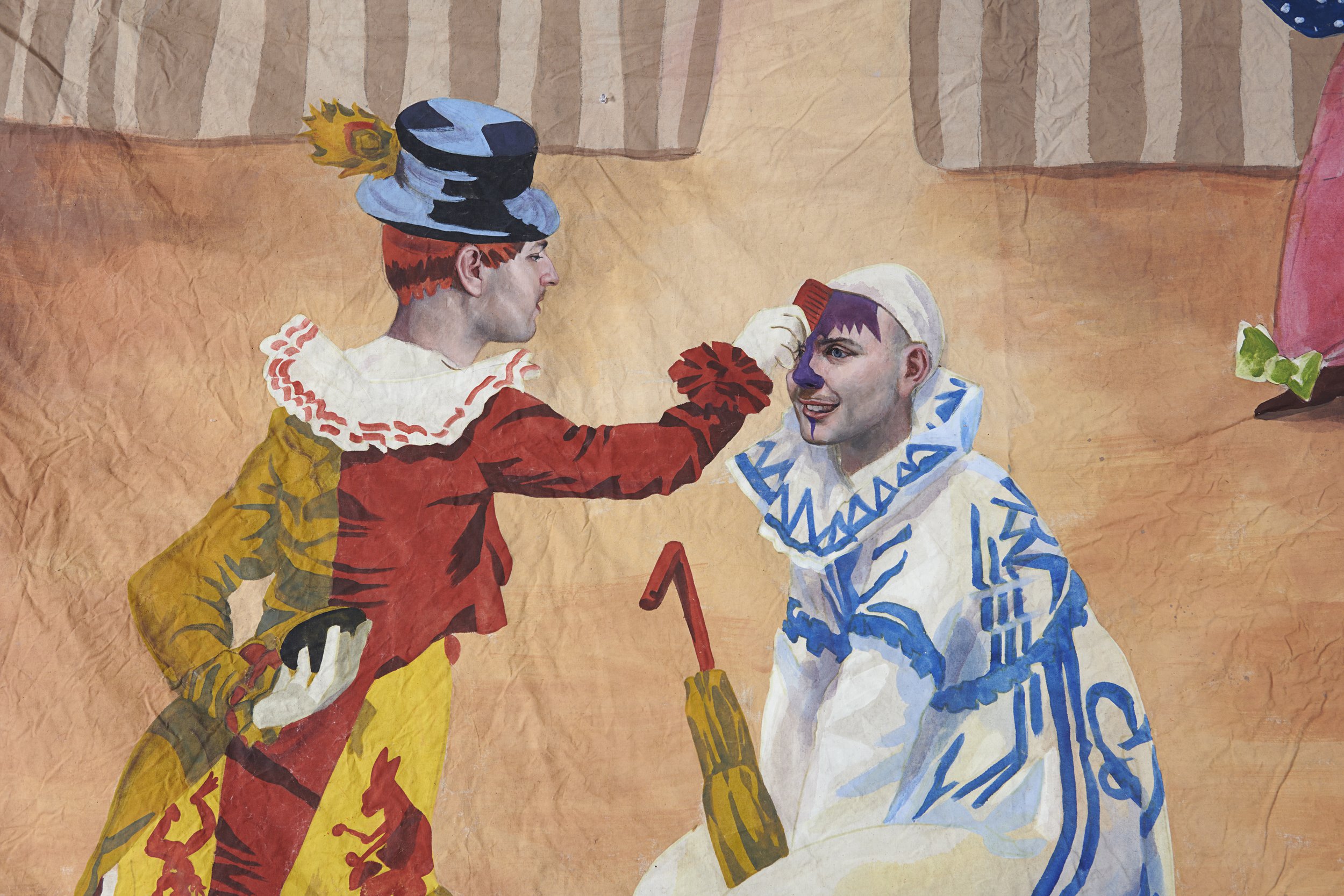
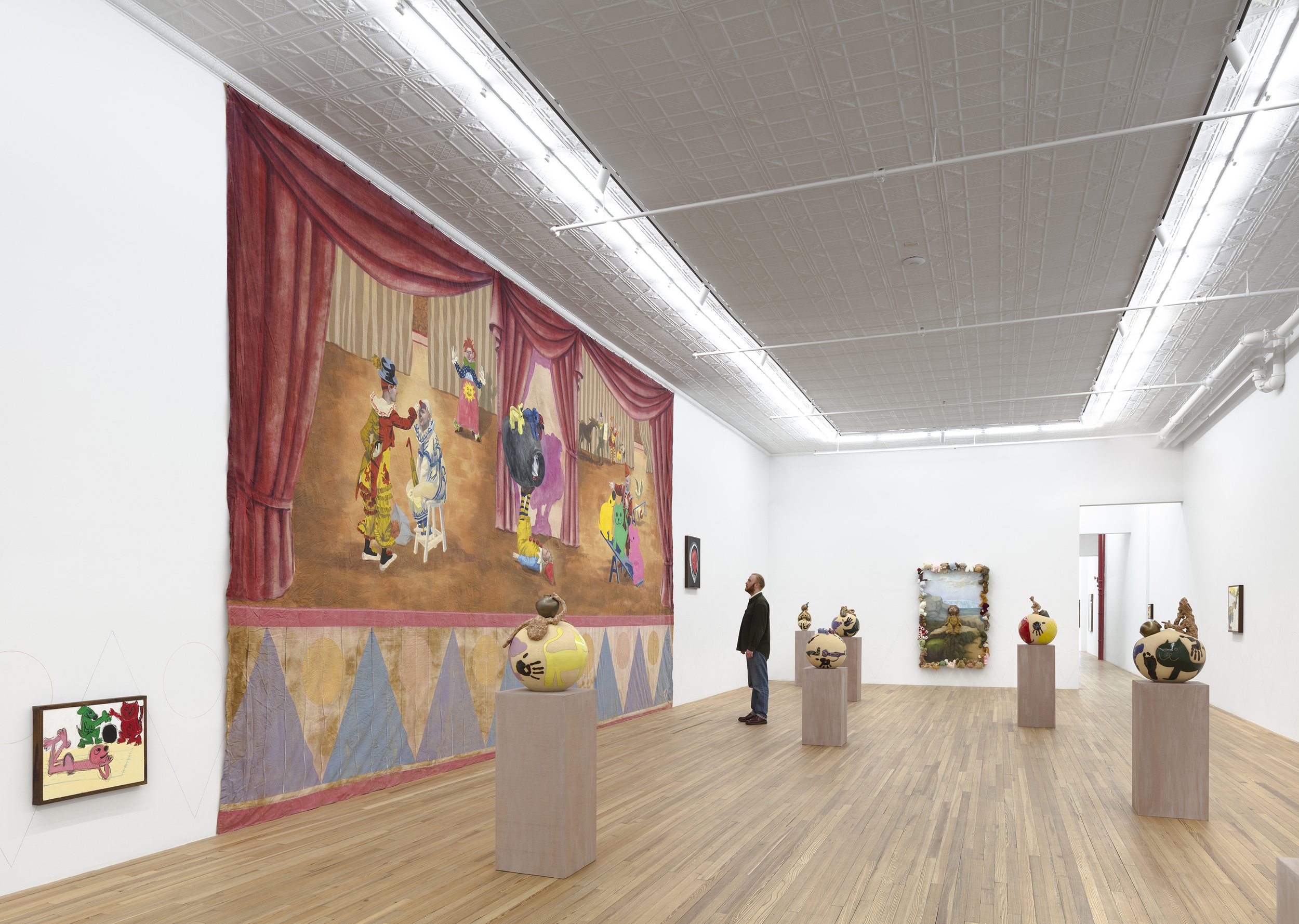
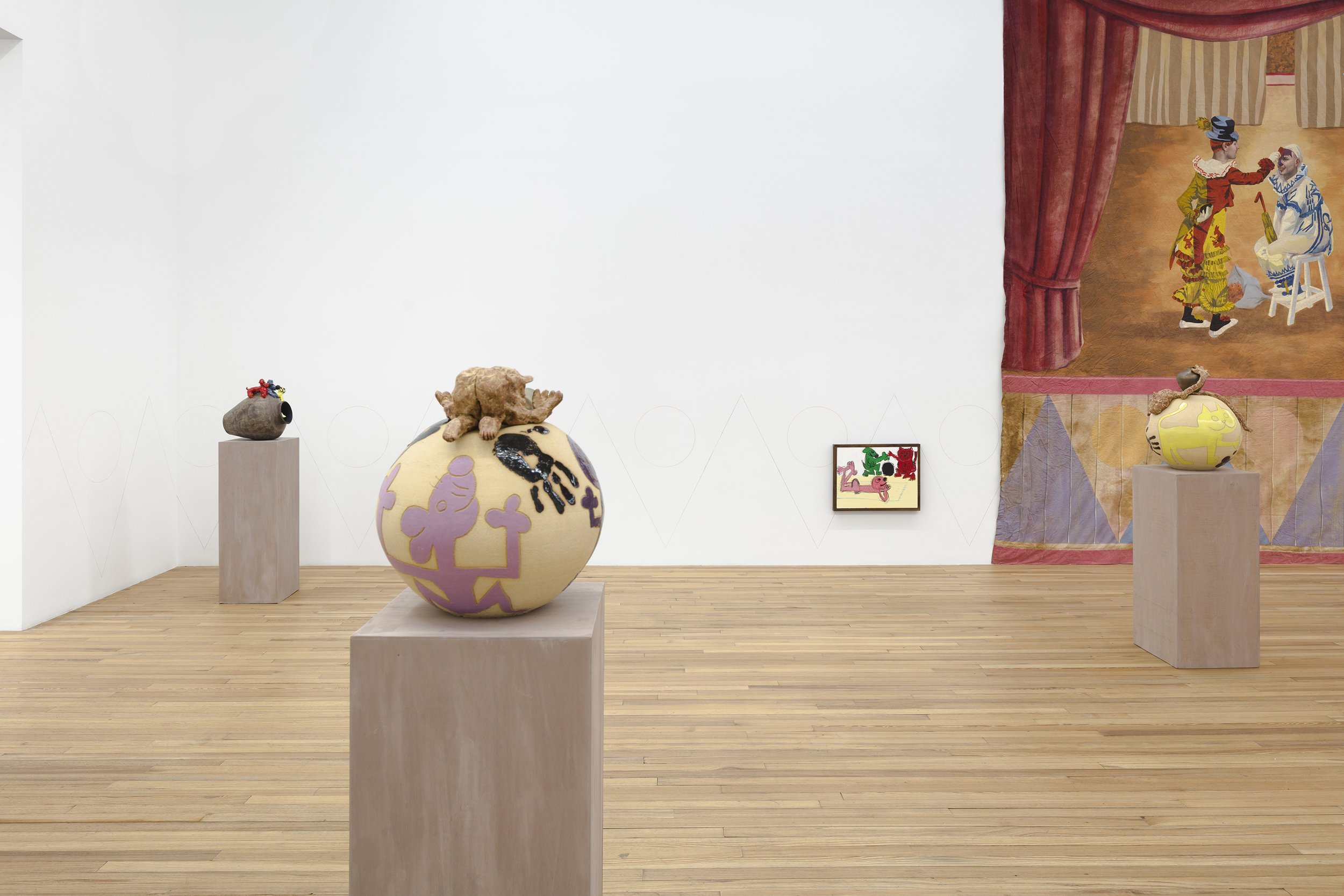
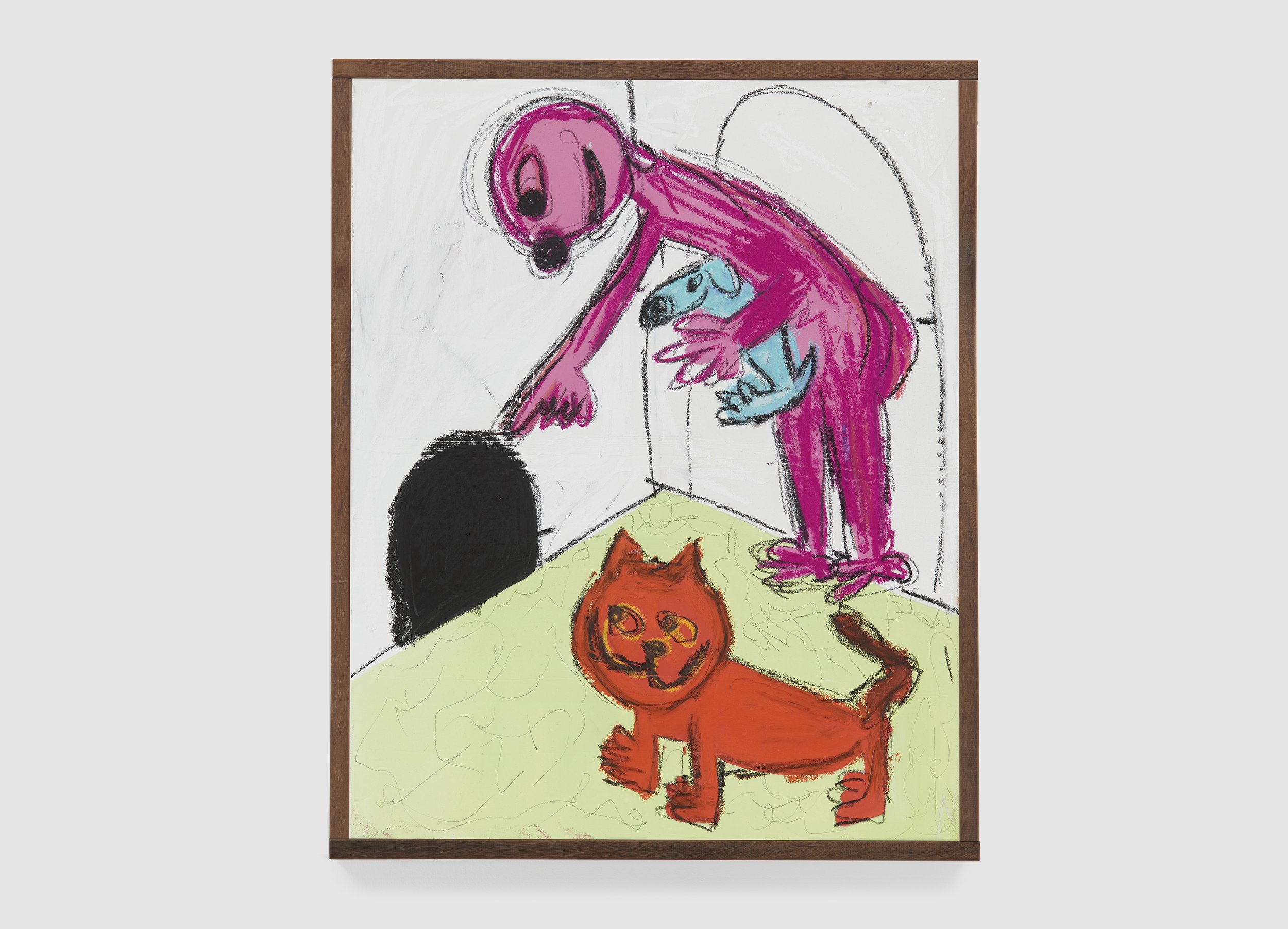
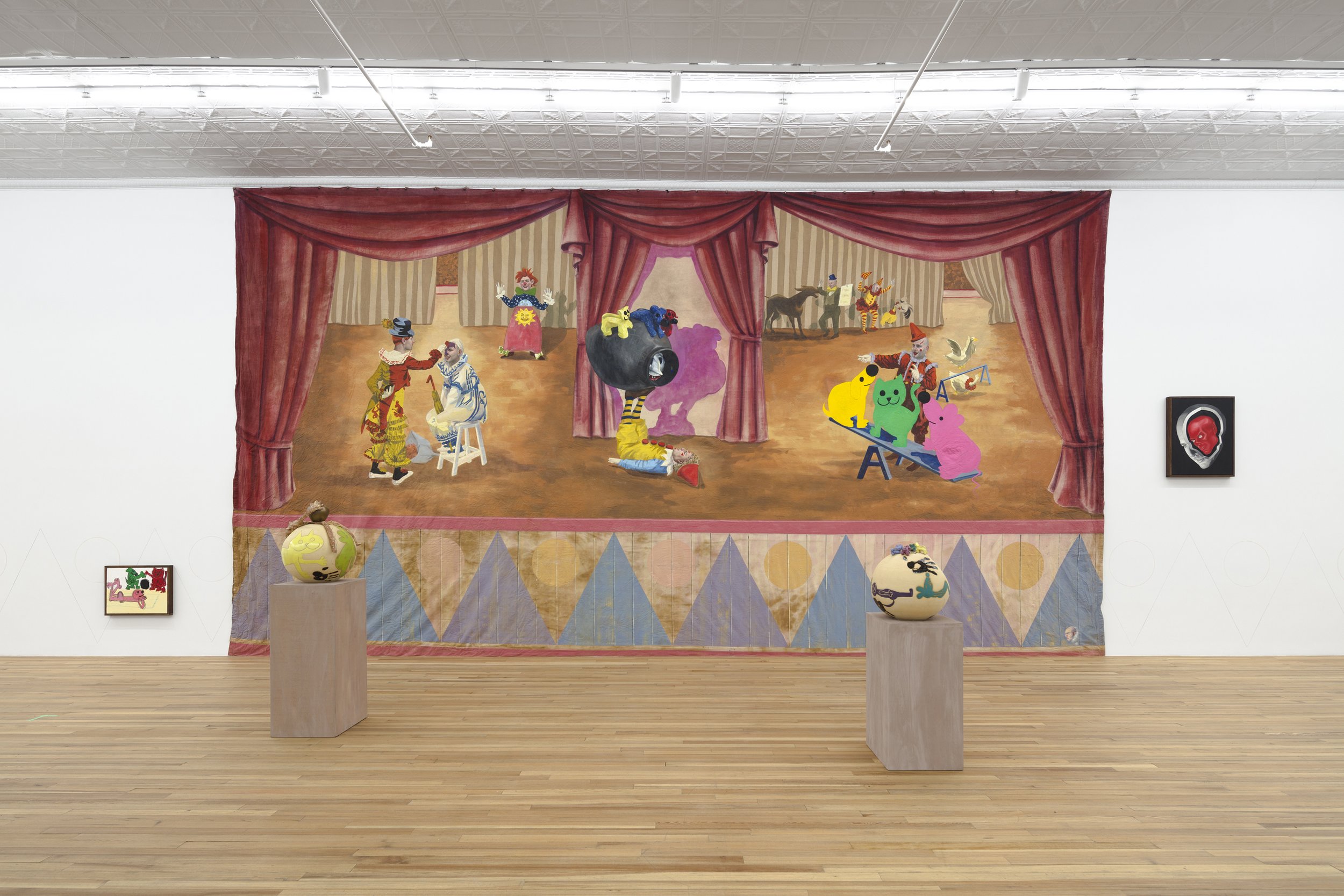
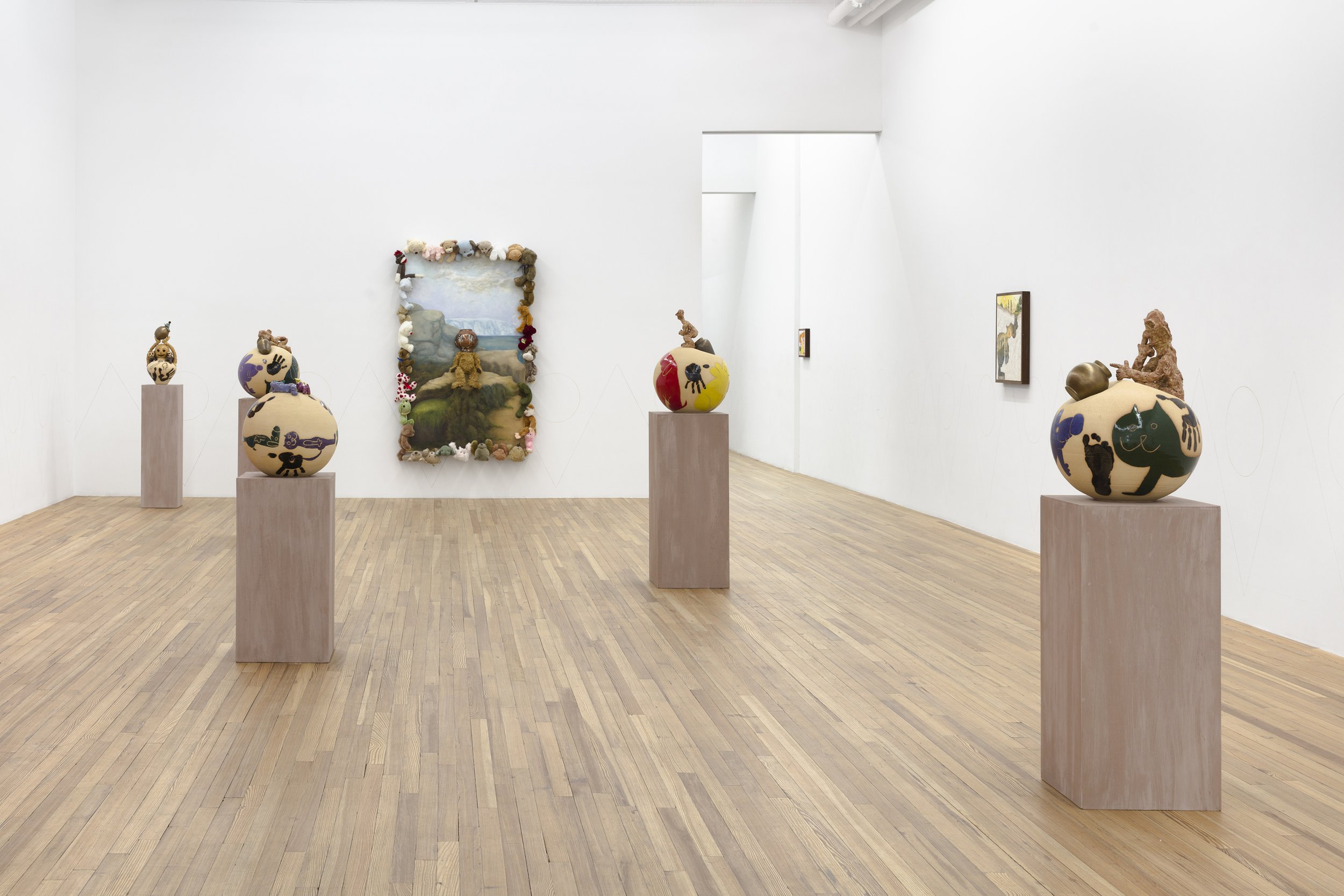
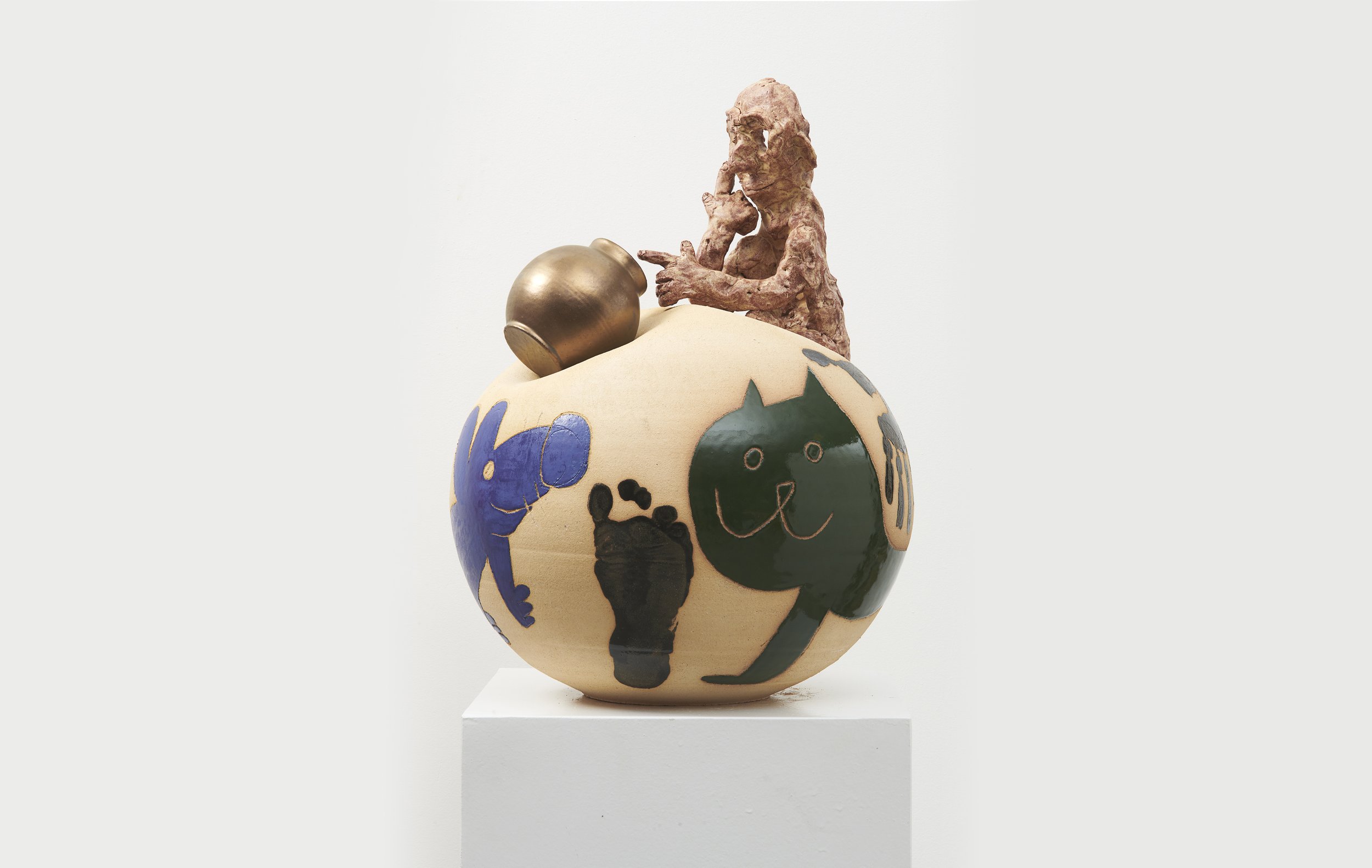
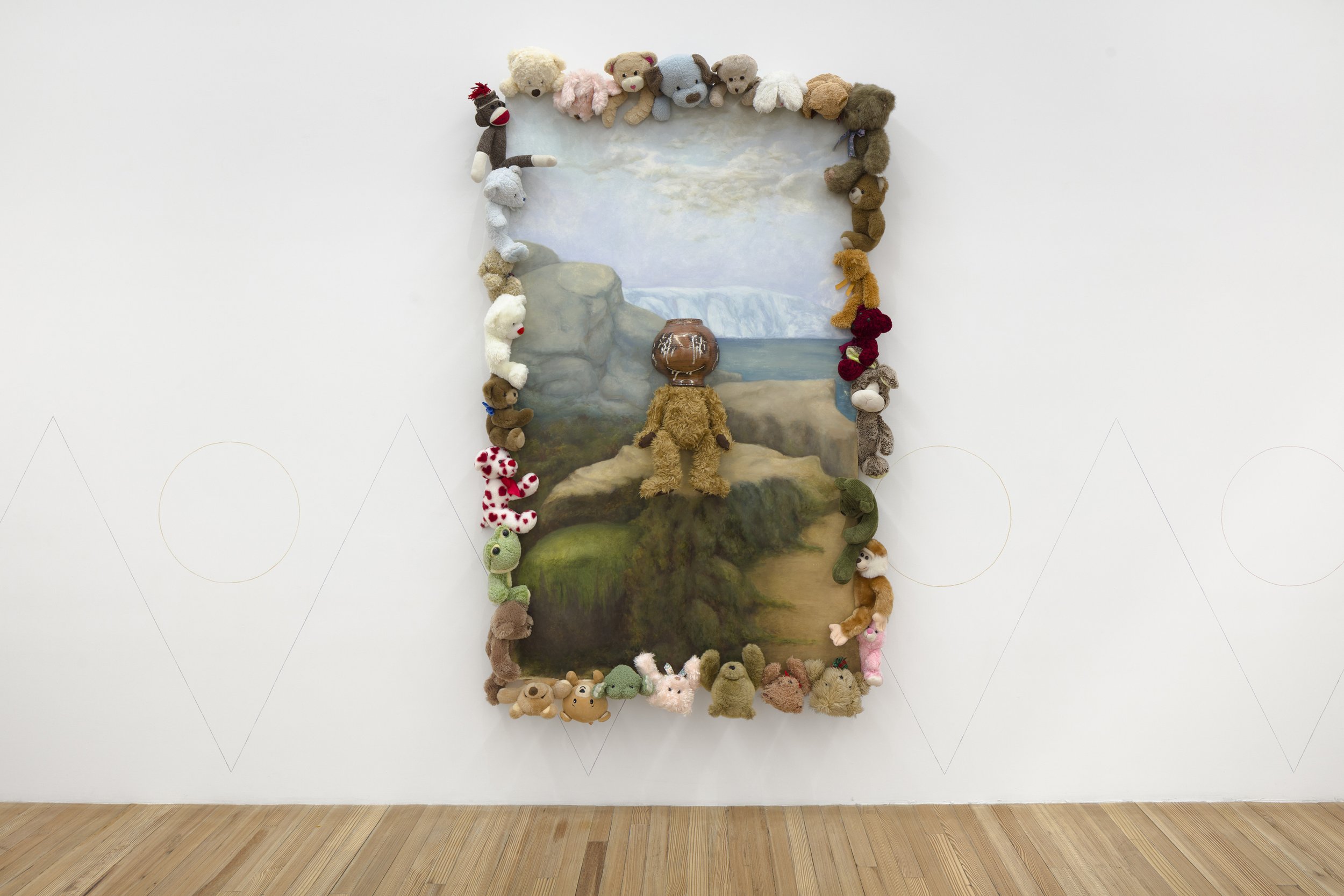
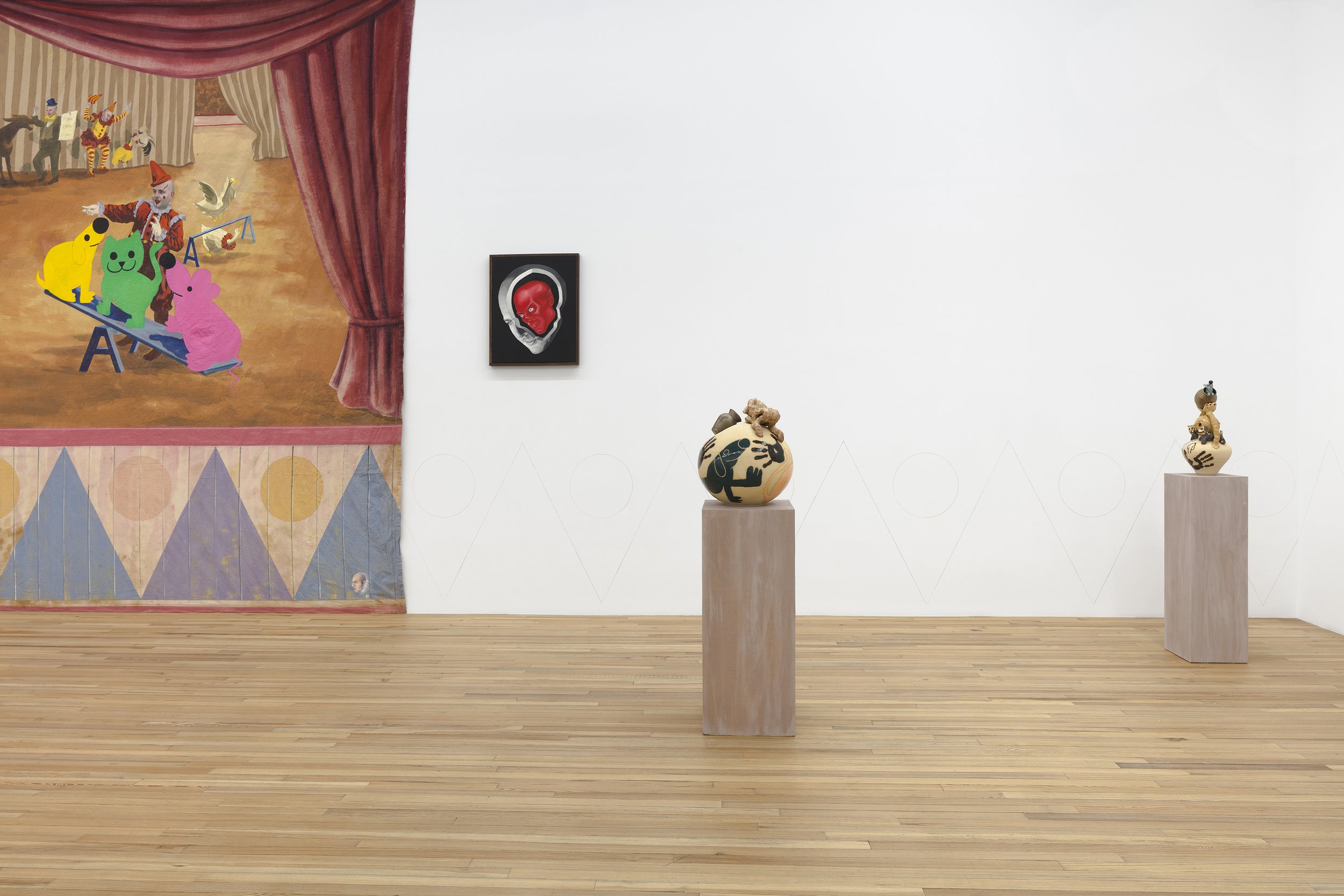
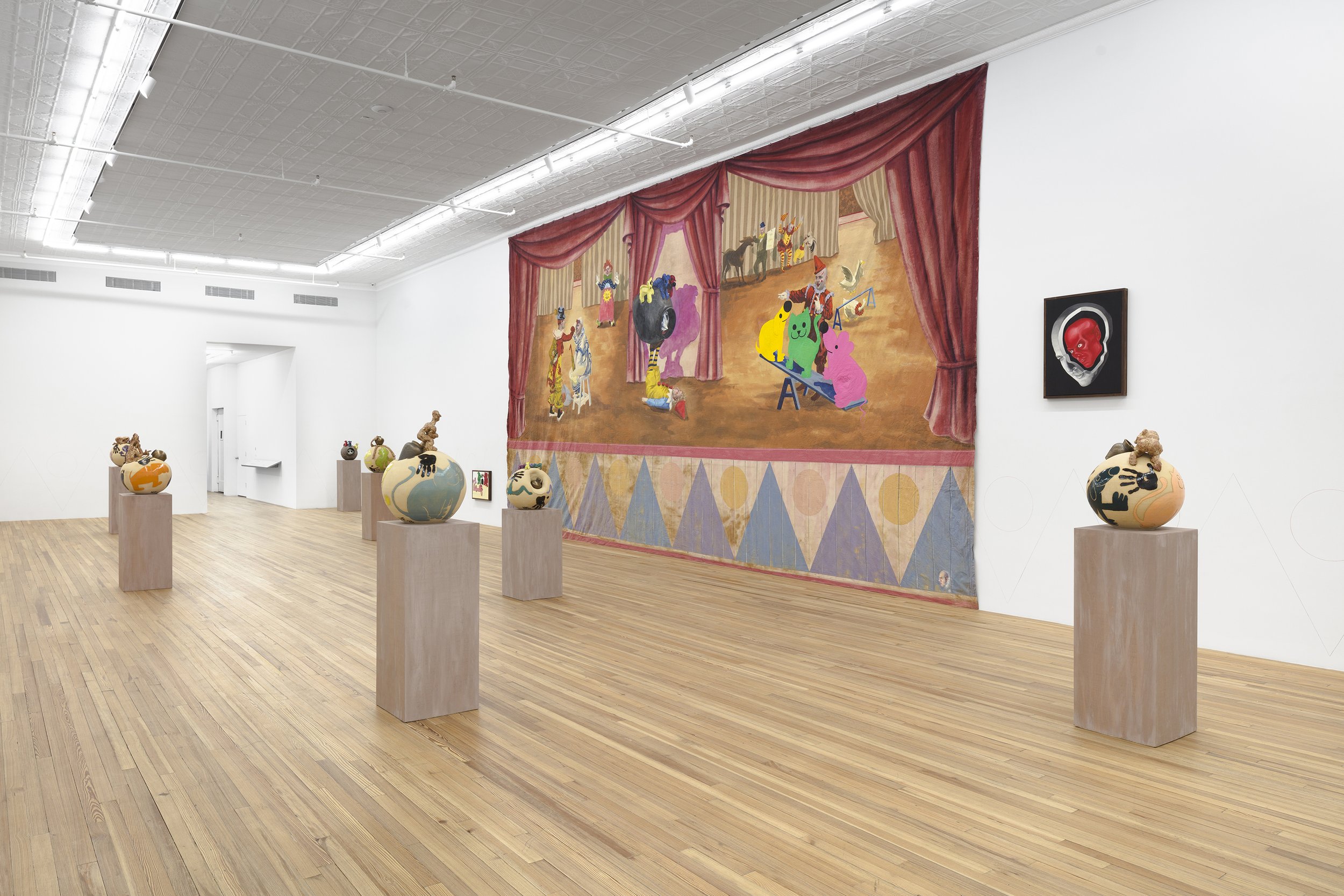
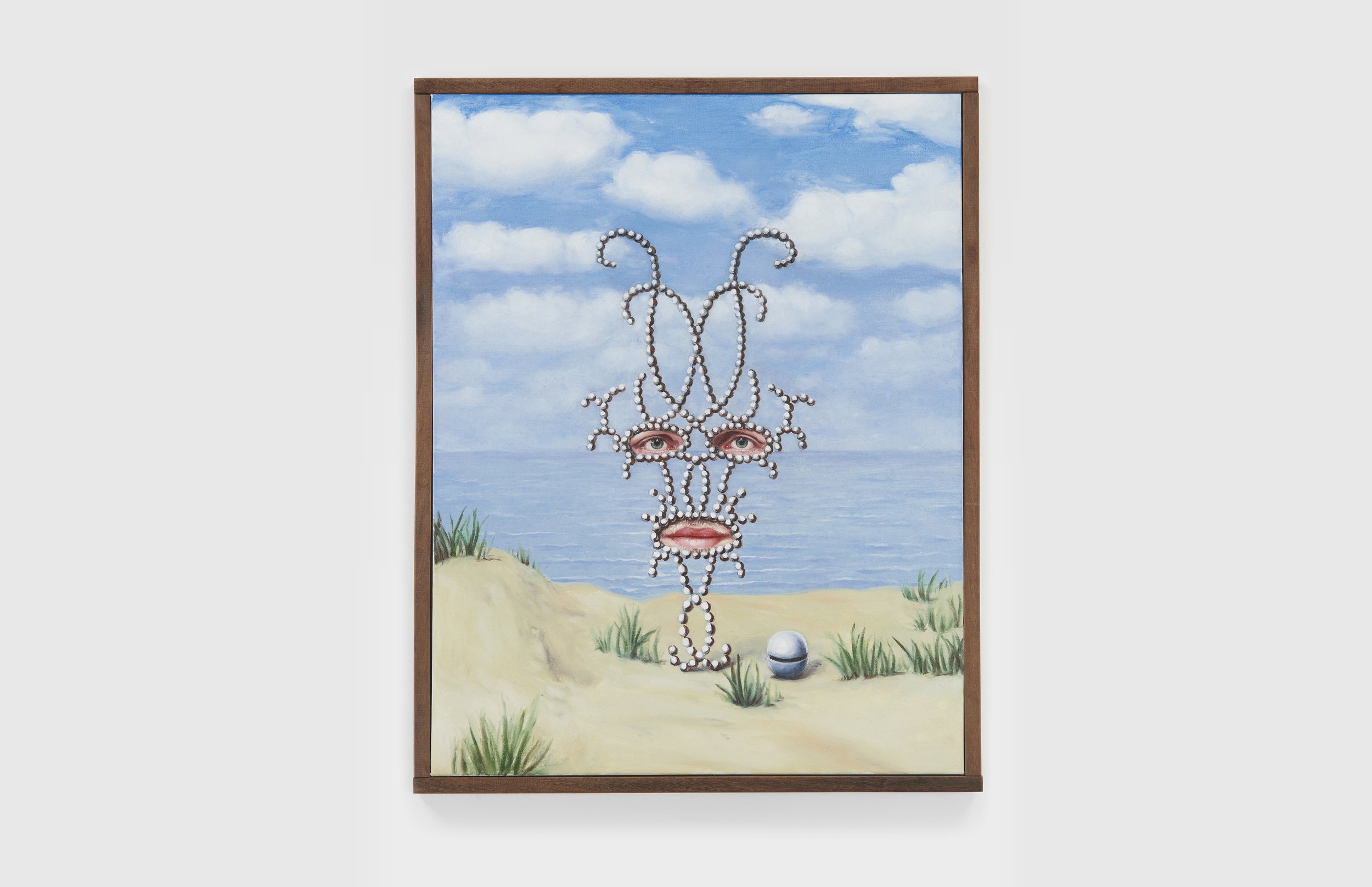
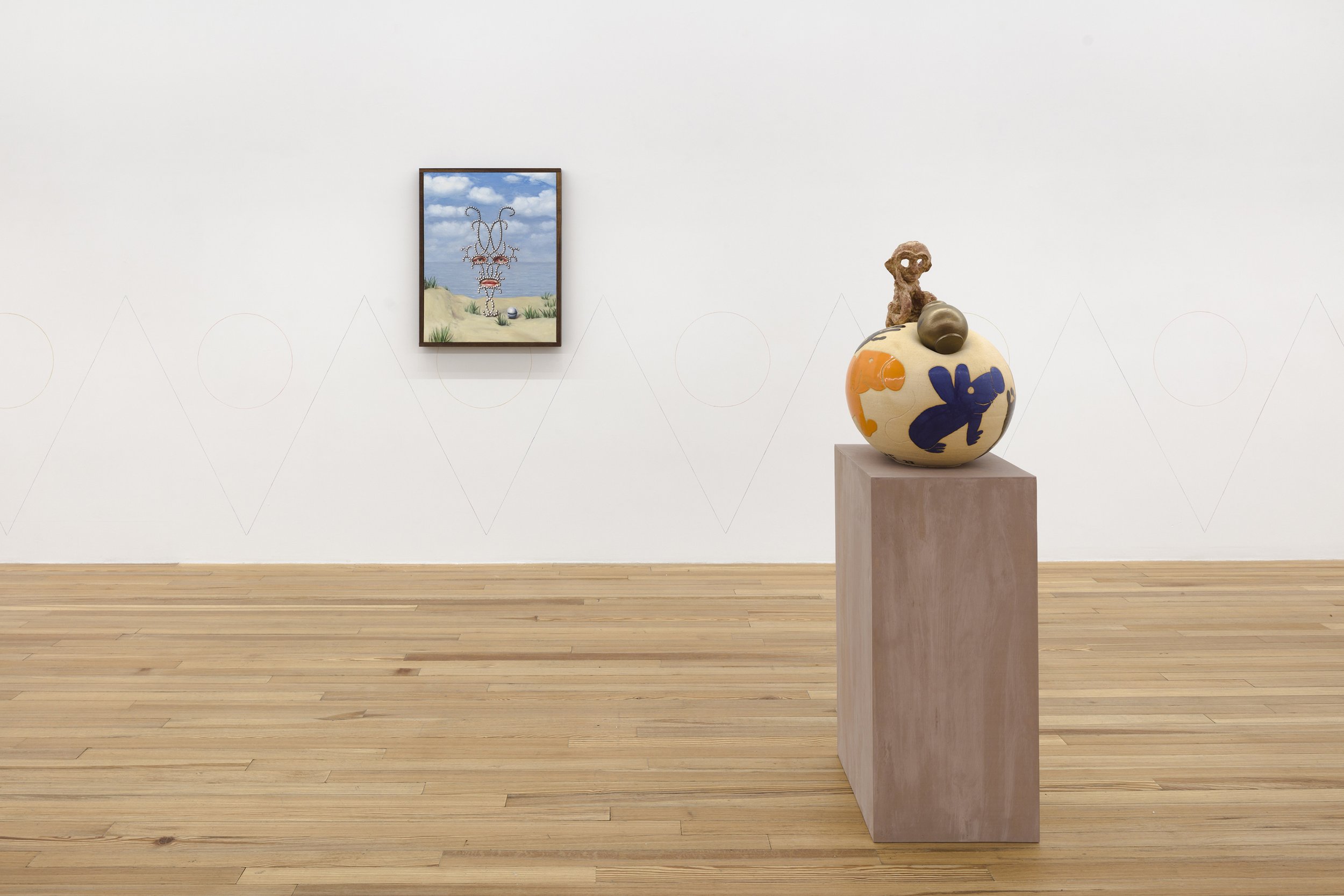
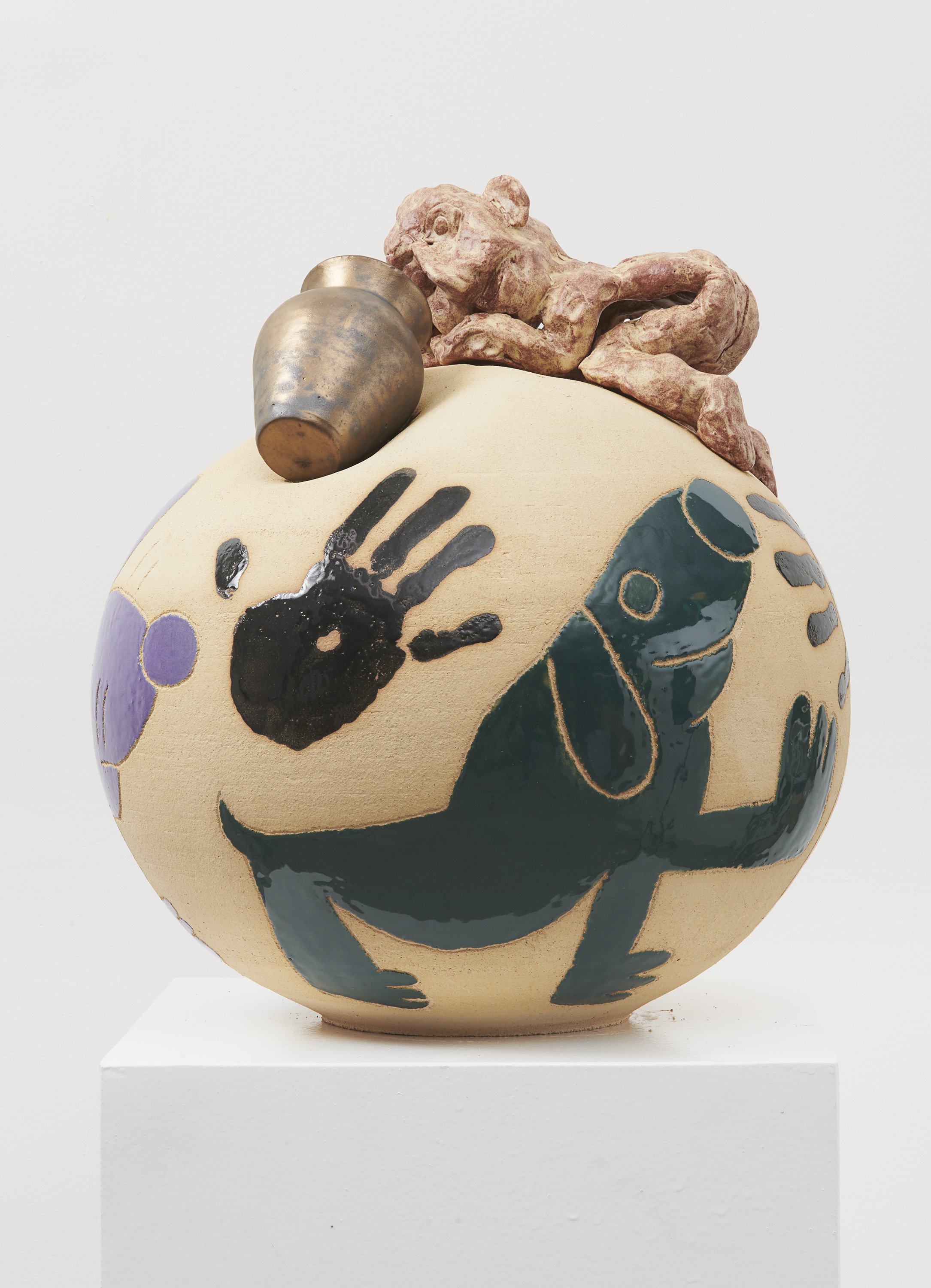
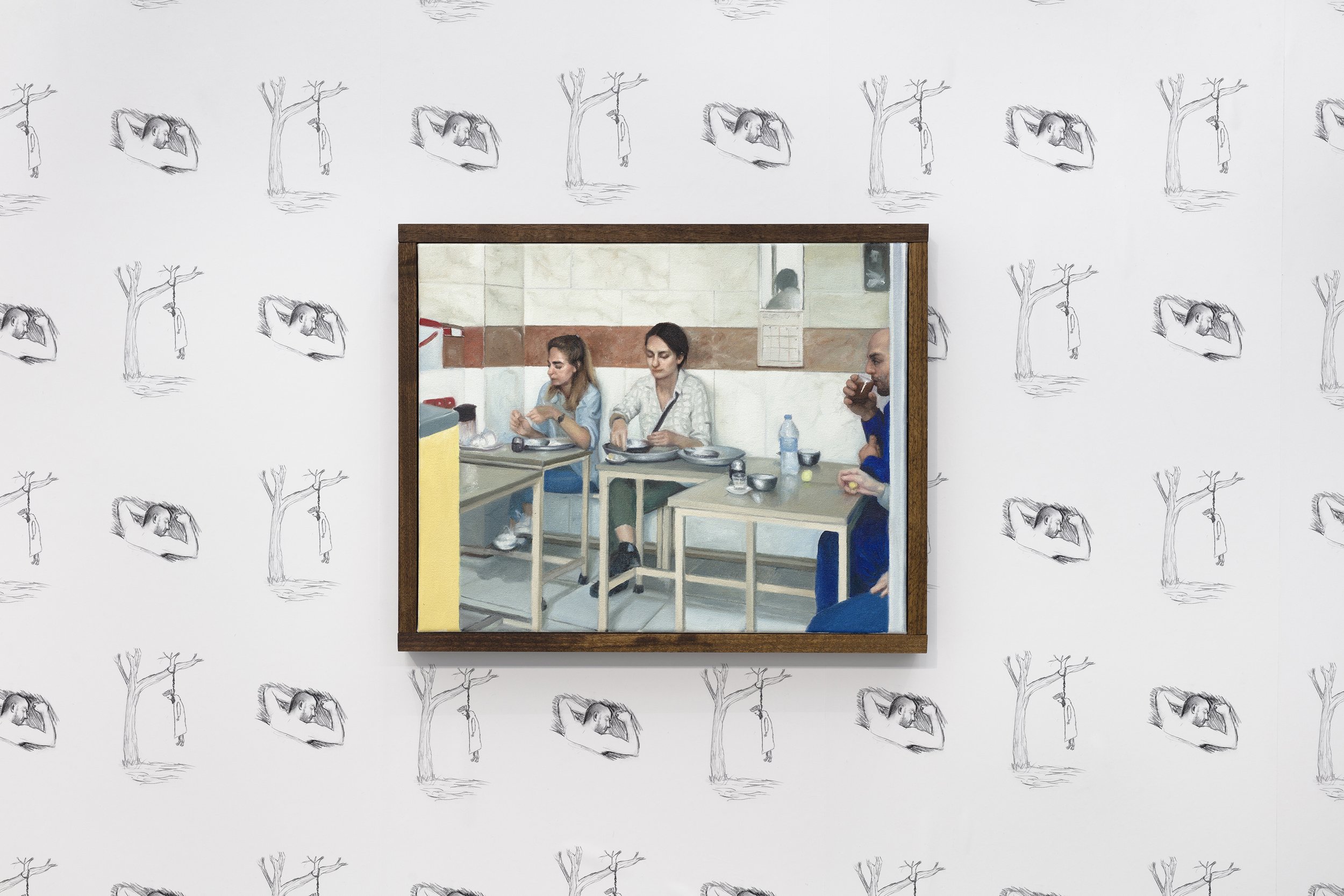
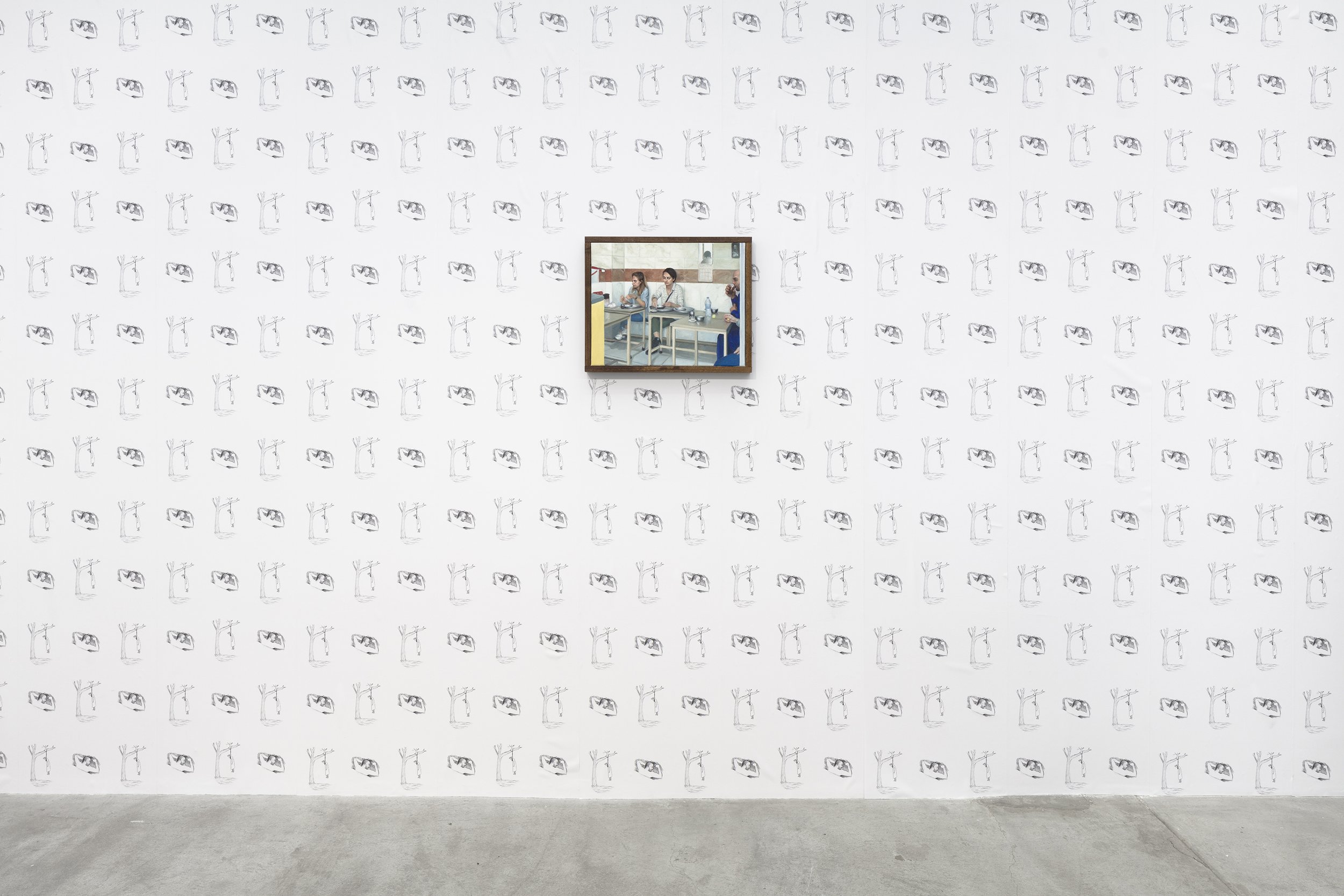
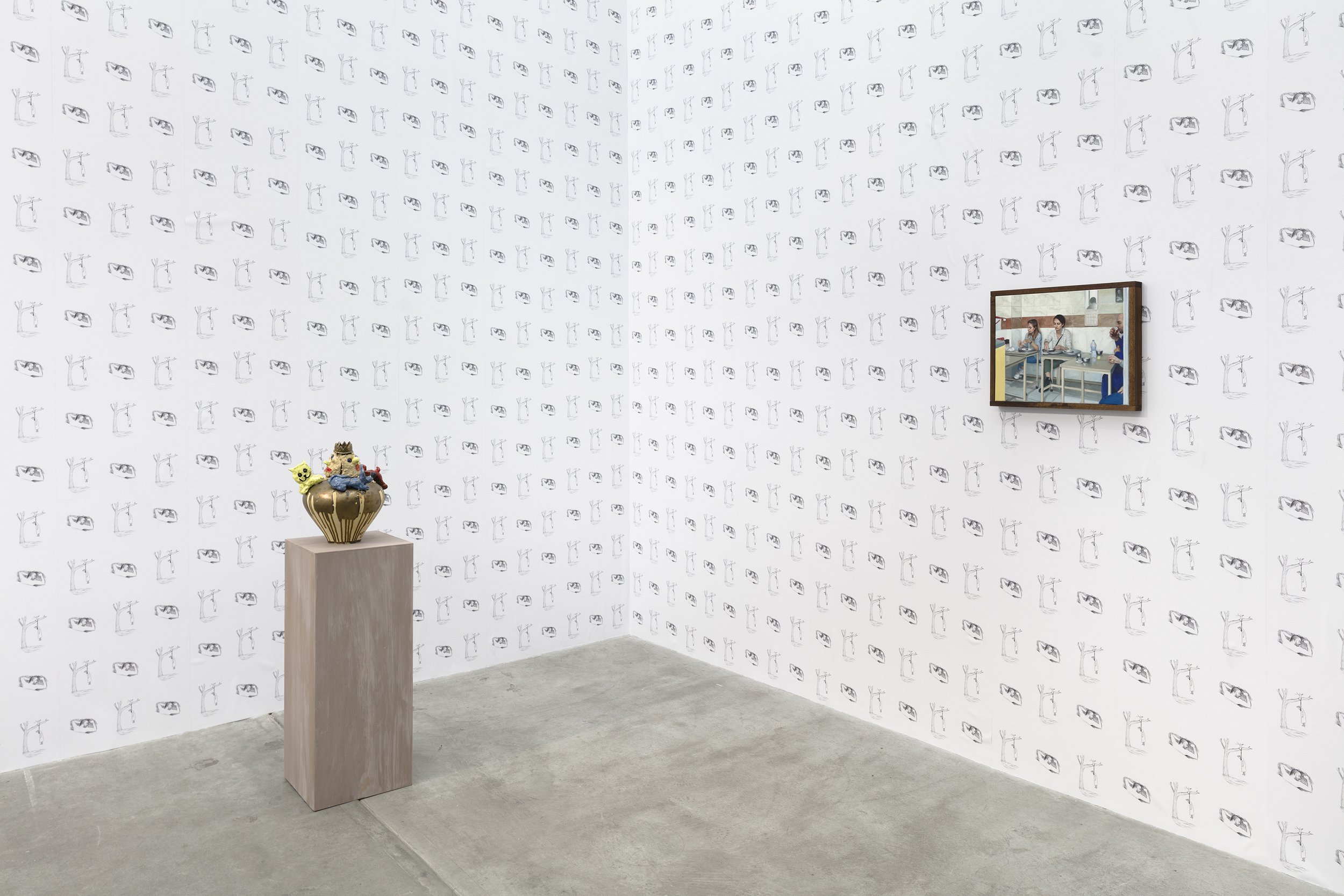
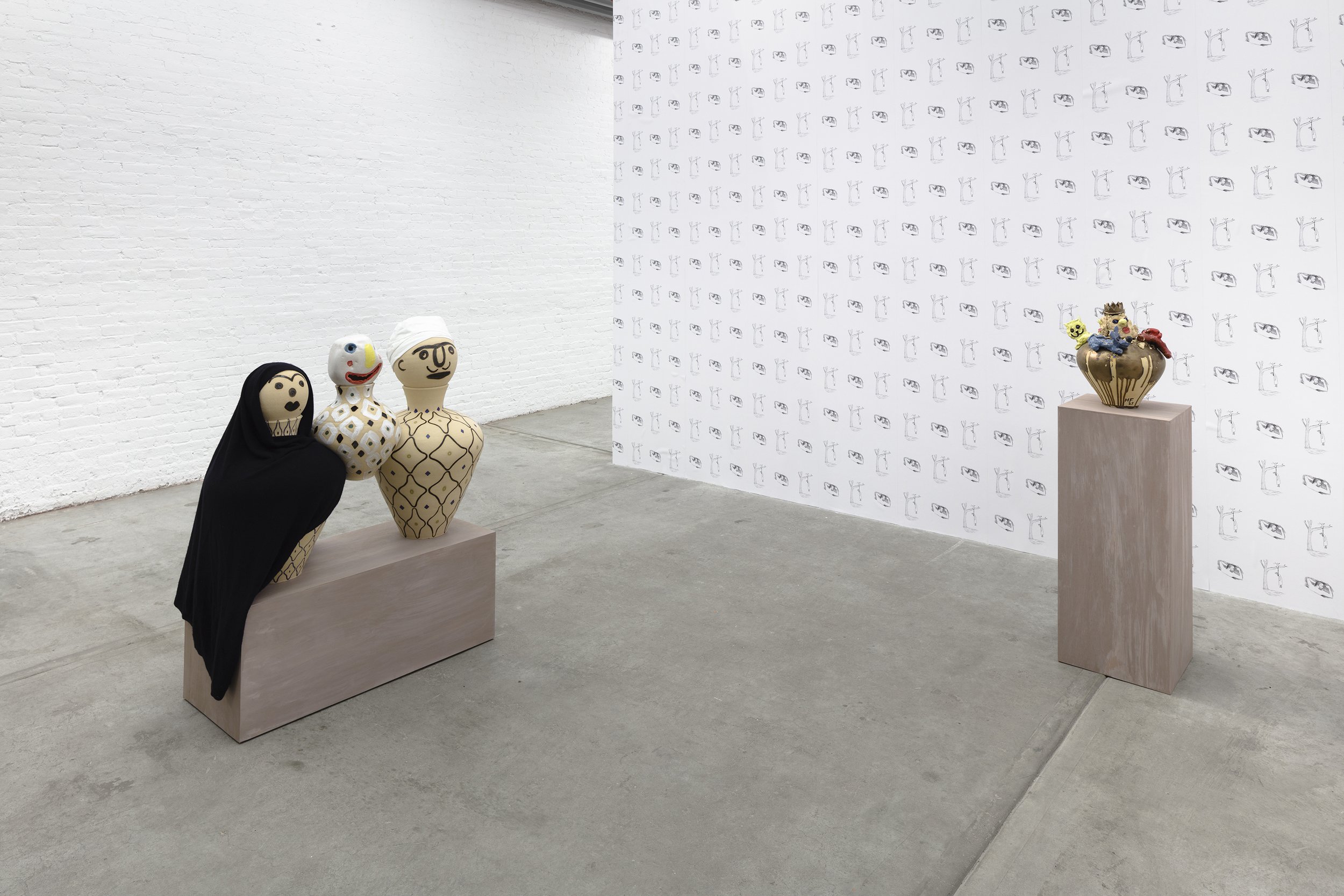
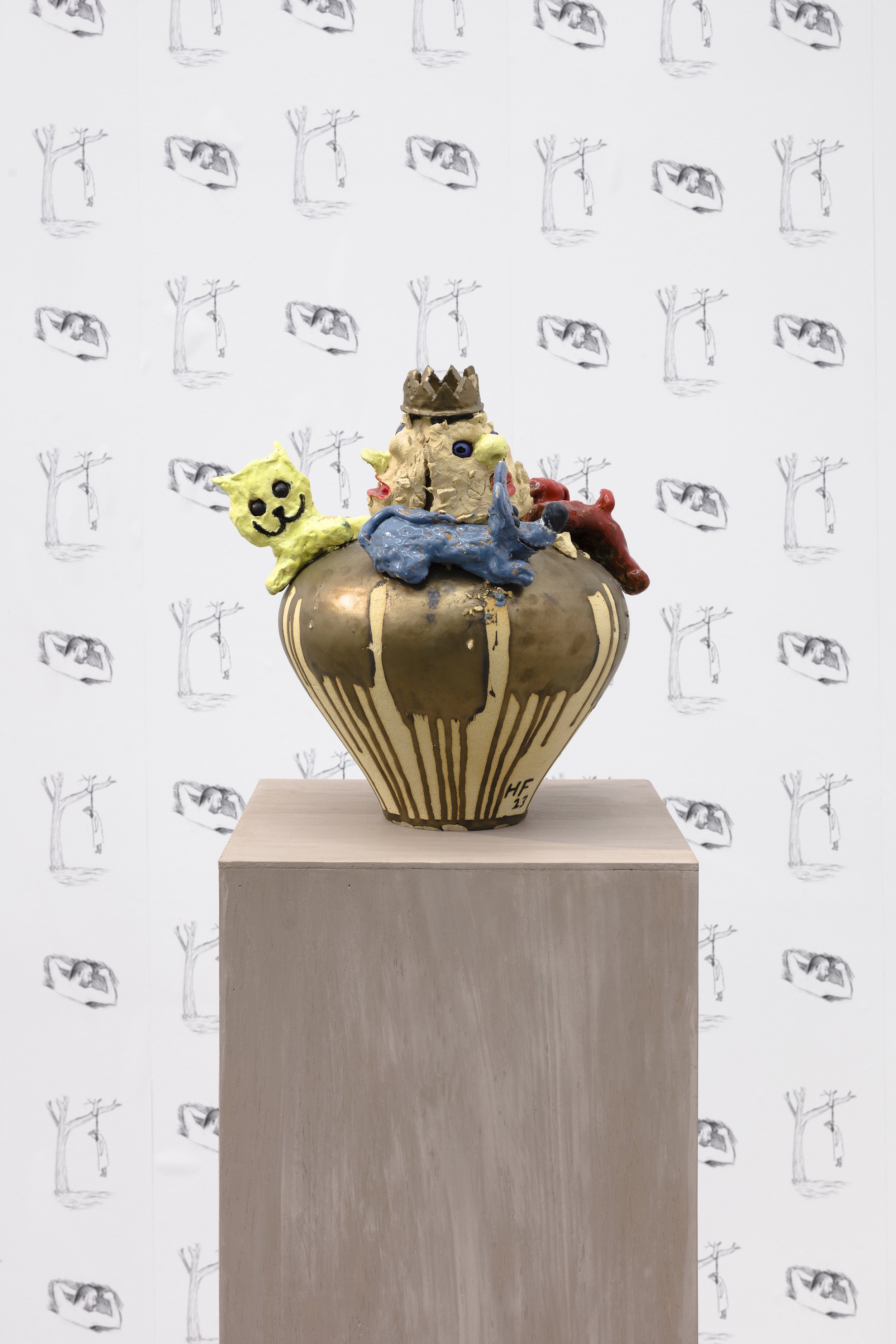
Almost Perfect
Andrew Kreps Gallery is pleased to announce Almost Perfect, Hadi Falapishi’s second solo exhibition with the gallery at 22 Cortlandt Alley
In Almost Perfect, Falapishi divides the floors of the gallery into conceptually distinct spaces, interweaving personal narratives, with historical references, and current events. Falapishi uses media omnivorously, including painting, sculpture, and photography, and throughout employs a consistent cast of familiar characters. Humans, dogs, cats, and mice playfully upend the hierarchies typically embedded within their relationships between each other, as the figures seem to grasp, hold, and help one another within ambiguous vignettes. Almost humorous in nature, these scenes in turn become a vessel for a larger exploration of themes of displacement, isolation, and entrapment. Rendered in a child-like vernacular, and often adorned with stuffed animals in varying states of distress, each work elicits a sense of nostalgia, exploring the often blurred boundary between memory and imagination. While Falapishi previously left these narratives open-ended, allowing the viewer to project their own desire, and interpretations, here, these are paired with the concrete references to real life, and appropriated imagery, allowing his work’s own inner worlds to take on new, tangible meanings.
A monumental painted banner displaying circus scenes is adorned with the artist's own repeated likeness, and occupies the main gallery, which has been titled “The American Room.” Functioning equally as a back-drop, and an activation of space, the banner additionally imbues the surrounding works with the artist’s own autobiography, allowing for an exploration of the artist’s own meditations on the space between his adopted home of the United States, and his native Iran. In the gallery’s double height space, Falapishi directly comments on the ongoing Iranian protests, filling the walls with a wallpaper that alternates with a drawing of the artist dreaming, and a hung Ayatollah. A reference to Robert Gober’s seminal 1989 work Hanging Man/Sleeping Man, the work also highlights an ongoing tension within Falapishi’s work between passivity and violence. Seen together with an intimate, realistic painting of two female Iranian activists eating with their hair exposed in a cafe, Falapishi examines the different ways in which revolution can manifest in image, and how fleeting images can be immortalized through reproduction.